K’taka Man’s Struggle Took Him From Begging For Food to a Rs 38 Crore Turnover!
Renuka Aradhya, the owner of Bengaluru-based Pravasi Cabs is the true embodiment of a self-made man.
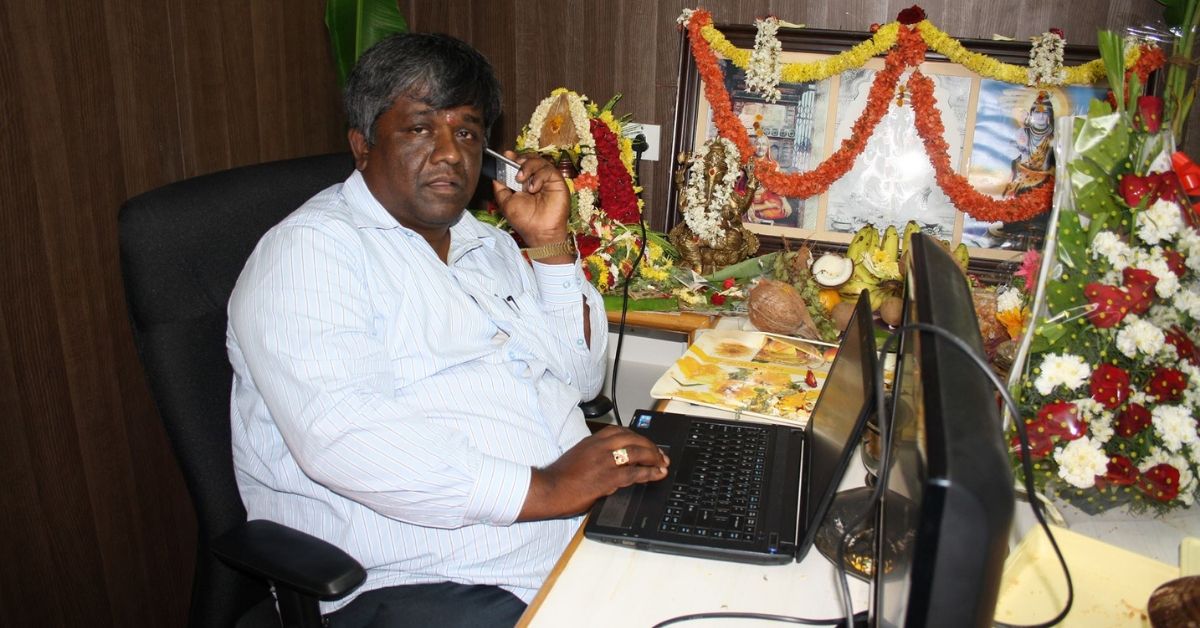
If you look at Renuka Aradhya today, you would find it hard to believe that as a little boy, he begged for food, worked as a domestic help, and pushed handcarts.
This is a man whose each grey hair signifies heartbreaking struggles he went through. But he is thankful for them as they made him the man he is today.
Aradhya, the owner of Bengaluru-based Pravasi Cabs, is the true embodiment of a self-made man.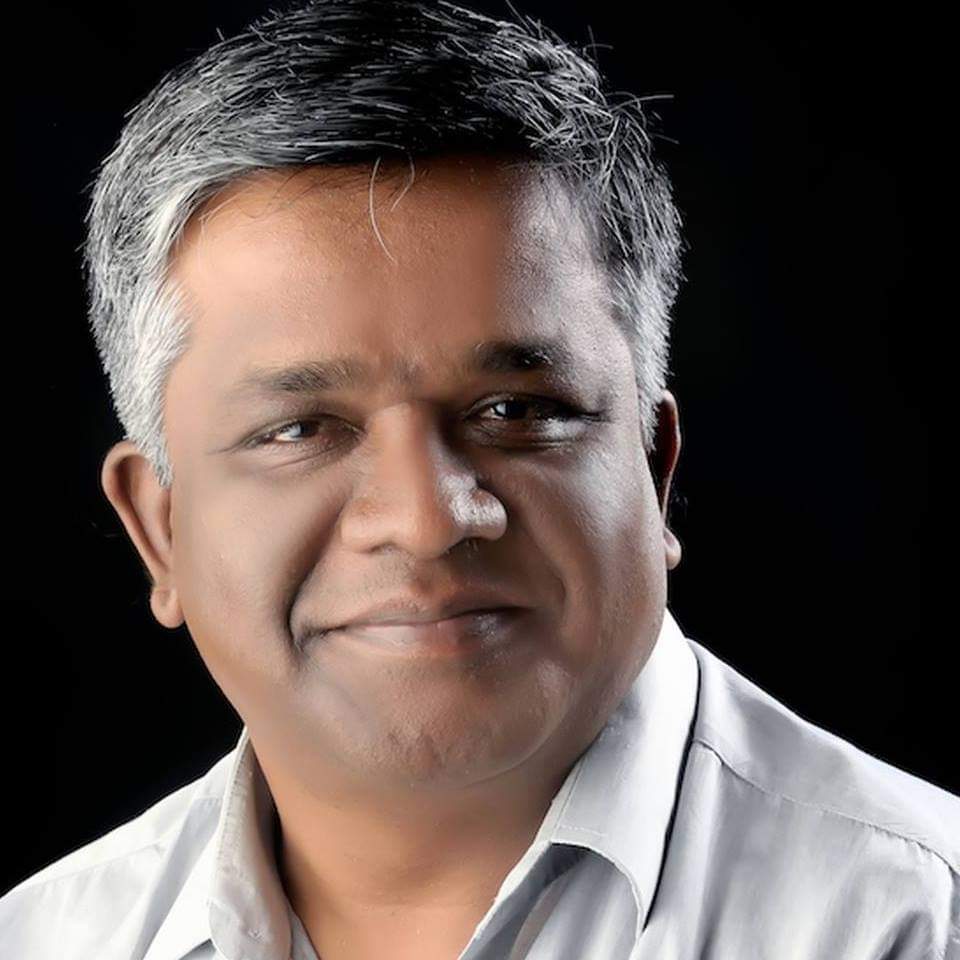
Click here for a selection of unique, eco-friendly accessories for your wheels!
Speaking to The Better India (TBI), he recalls, “I was born in the small village of Gopasandra, located in Anekal taluk near Bengaluru. My father was a priest and had no fixed income. We had an acre of land in which we could not grow what we needed. So I would accompany my father when begged for alms in the form of ragi, jowar, or rice. He then sold these grains to sustain our family.”
The youngest of three children, Aradhya stayed with his parents while his elder brother and sister were sent to Bengaluru to study. The little boy juggled school and working with his father in the field. When the going got tough, his father decided to send the 12-year-old as a domestic help. There he would tend to cattle, and do household chores.
Later, he was enrolled in a school in Chickpet to complete his class 10 but three years later Aradhya was informed of his father’s passing and had to return to his village.
“My father was a very good man. His death created a void. The responsibility of my mother and my sister fell on me because my married brother refused. So I had to drop out of school and start working.”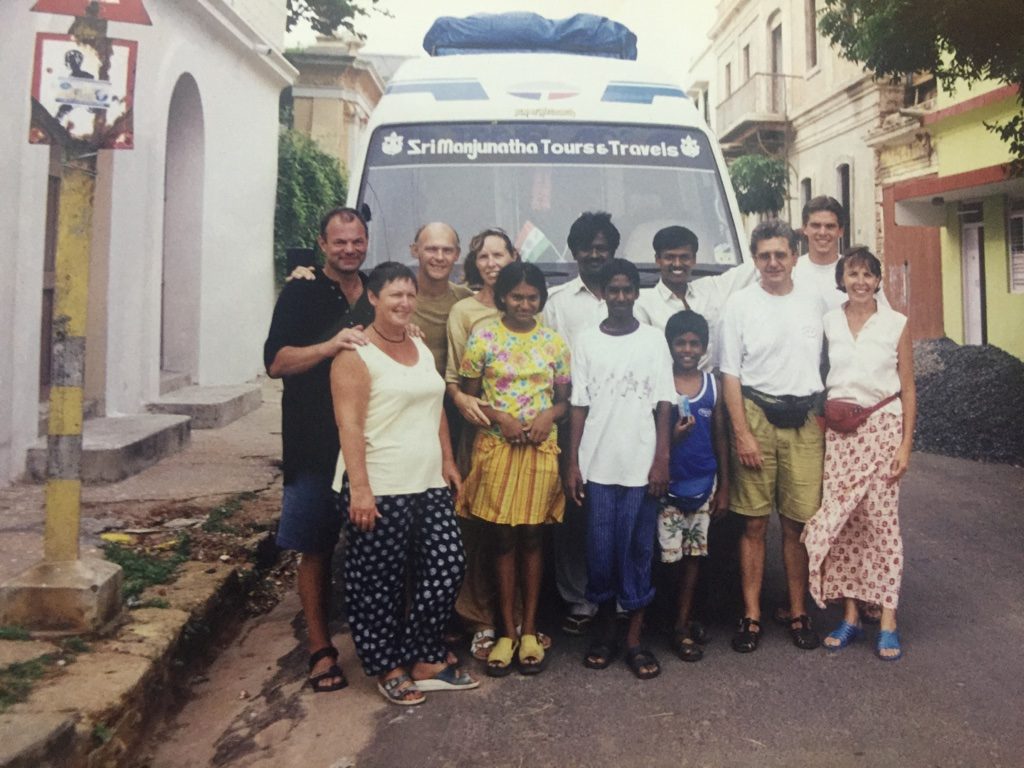
He was no older than 15 when he started working a string of odd jobs like working at a lead factory in Audgodi, a plastic manufacturing company and later in an ice cube manufacturing factory. To supplement the income, he also worked as a security guard at night.
Later he got a job as a sweeper in a printing centre. His sincerity impressed his employers and he soon picked up photocopying and basic computer applications and helped with the printing for almost a year.
The idea of doing a business sparked only after he quit his job. When Aradhya joined the famous Shyam Sunder Trading Company as a helper, he would load a handcart with cartons of the company’s suitcases and bags from the manufacturing unit and pushed them to the shops in the vicinity.
Within a year, he was promoted to a salesman. This was in 1987.
As a salesperson, I was exposed to the market and started learning about sale margins, customer demands, retailers, vendors, and buyers etc. And so I thought, ‘why not start my own business?’ So I stitched covers for suitcases and vanity bags, loaded them on my bicycle and sold them on city roads. The business failed and I lost a lot of money. Left with no option, I returned to being a security guard.
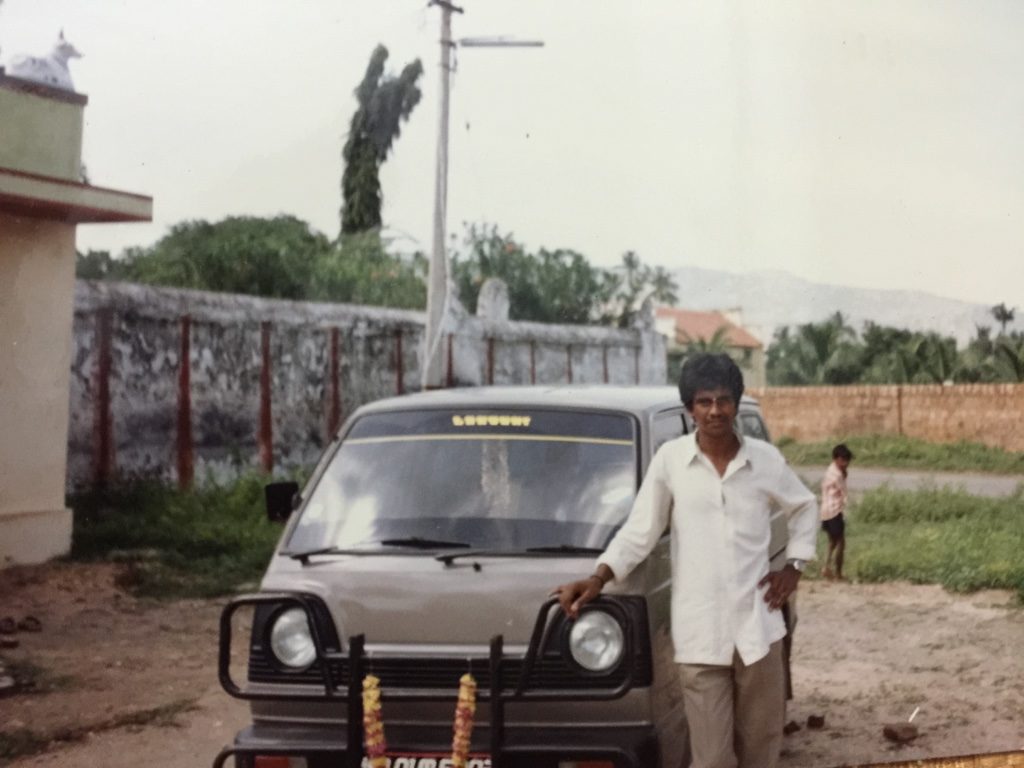
At the age of 20, he got married. And after meeting Pushpa, his wife, there was no looking back. She started working at a garment factory to help run the home and together, they earned about Rs 600 a month. He also earned additional income by becoming a gardener or climbing coconut trees, charging Rs 15 a tree and climbing 20 trees a day.
The idea of driving came to him when he interacted with drivers while working his shifts as a guard. He realised that driving as a skill will never go out of fashion or stop being lucrative.
To this end, he borrowed money from his relatives and pawned his wedding ring for driving lessons and acquired a driver’s license.
His first day as a driver lasted only a few hours as he rammed the vehicle into a gate while reversing it.
But, hope came in the form of a taxi operator, Satish Reddy. “He took me to his house and trained me. While I drove locally for the first three days, on my fourth day, he told me I would be driving to Gokarna. I was really nervous and super careful. That trip was a success and the feedback from the passengers about me being a safe driver helped build my confidence. I worked with him for two years.”
Aradhya later joined a transport company, which also provided services of transporting dead bodies from hospitals to their homes for the final rites across India.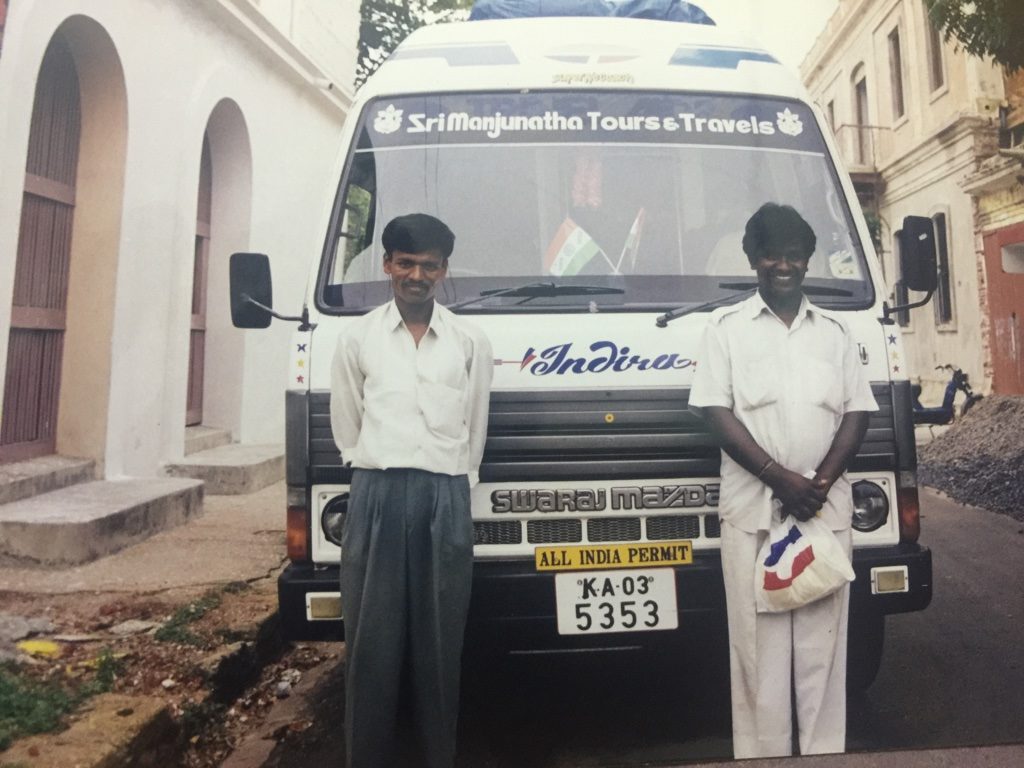
“I worked there for four years and transported about 300 dead bodies. Many a time, I would travel alone with the body for two days. It did not deter me. I thought of myself to be fortunate to help the deceased reach their family homes one last time. I wore my uniform and pride on my shoulder. I was and am proud to be a driver.”
“While I was happy with my job. I knew my larger goal was to build my own travel company.”
What inspired the thought?
There was one incident in particular. When I was working as a driver, we would have to submit our trip sheets to the agency at the end of a trip. One day when I walked into an office, I was asked to wait outside and told to send the sheet through the security guard. That was the day I thought, I would build a company where drivers, who are not just employees but partners, are treated with respect. They are given the liberty to walk into a cabin and submit their documents without being made to feel like second-grade citizens.”
In 2000, he bought his first car on a loan of Rs 1.5 lakh. When asked, his brother refused to be a guarantor. The tips from tourists he had saved in the last four years, along with his wife’s Provident Fund helped in the end.
Wanting to waste no time in laying the foundation of his business, he bought six more cars over the next few years and hired 12 drivers on a 12-hour shift each. He put them on the city-based Spot City Taxi network for the next two years.
In 2006, he was alerted that a company known as Indian City Taxi was on a distress sale. He sold all his cars to buy the company. Since the company had 30 cabs attached to it, it was already making about Rs 80,000 per month.
He registered the cabs under ‘Pravasi Cabs.’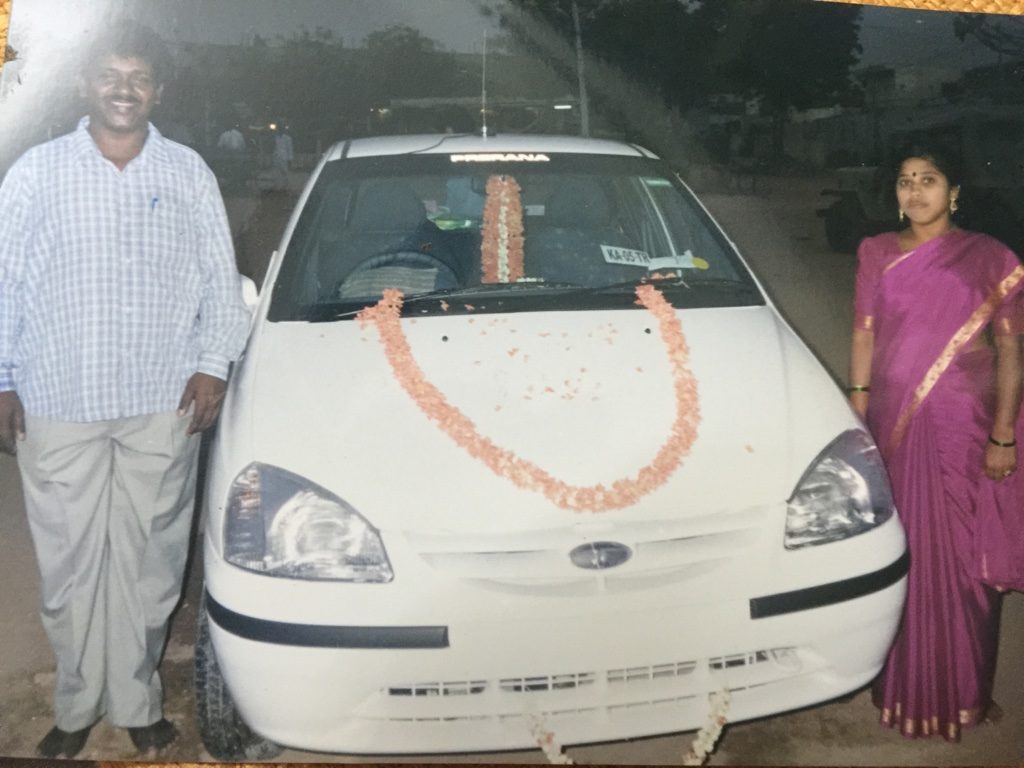
The beginnings of his company were humble.
“In 2007, when we began operations, my first client was Amazon India. It was new back in the day and was setting up its Chennai office. It was for the first time, we undertook employee transportation (pick and drop services for employees). But the payment cycle was quarterly, so input costs of diesel, salaries kept piling on. I had to keep taking recurrent loans to sustain the business.”
The first payment he received from Amazon was Rs 72,000. Giving Rs 20,000 to help run his home, he reinvested the rest of his earnings back into the business. The number of cabs slowly grew up to 300.
“I never shied away from taking risks. Even if my cut was really low, I was focussed on growing this business, so it could benefit at least 1,000 families like mine when I was younger.”
He also steadily started expanding his clientele by getting companies such as LinkedIn, Walmart, Akamai, General Motors, on board. All without a sales or marketing team and no formal education!
Until 2018, the company spread its base to cities like Chennai and Hyderabad too. He had almost 1,300 cabs running. But the stiff competition from other aggregators such as Ola and Uber led to the closure of business in the other two cities. The number of cabs also came down to 800.
Apart from accommodating owners who want to put their own vehicles on the platform, the company also runs a unique owner-cum-driver scheme.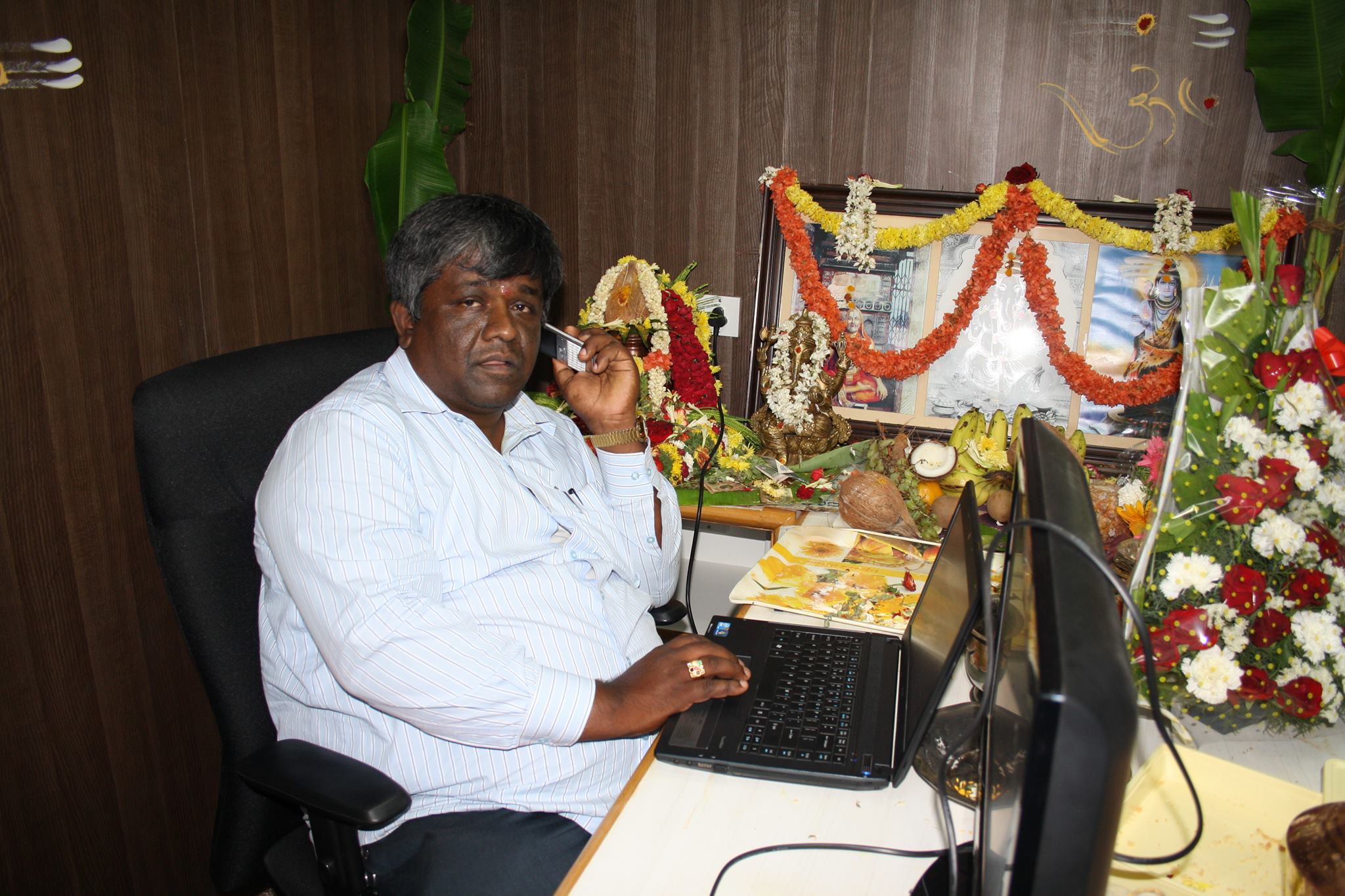
“At an advance of Rs 50,000, we buy them a new car. The driver then has to work for 36 months where the EMI amount will be deducted from his salary. Once the amount is paid off, the car would be transferred to his/her name. Then they are free to continue working with us or go to other aggregators too.”
At its peak, the business made a turnover of Rs 46 crores. Though it currently has a Rs 38 crores turnover, he aims to cross the 100 crore mark in the next few years!
In his final message to aspiring entrepreneurs, Aradhya says, “Don’t stop dreaming big or taking risks. Be honest in all aspects of your life whether it is your family, friends or business. And don’t ever stop learning. I did not go to college, but the world was my university and the people in it, my books. Be service-oriented and treat the people who work for you with the utmost respect. They are the pillars of your company.”
Also Read: Working in a Call Centre to IPS Officer: Suraj Parihar’s Story Shows That No Dream Is Too Big!
(Edited by Saiqua Sultan)
Like this story? Or have something to share?
Write to us: [email protected]
Connect with us on Facebook and Twitter.
This story made me
- 97
- 121
- 89
- 167
Tell Us More
We bring stories straight from the heart of India, to inspire millions and create a wave of impact. Our positive movement is growing bigger everyday, and we would love for you to join it.
Please contribute whatever you can, every little penny helps our team in bringing you more stories that support dreams and spread hope.



















